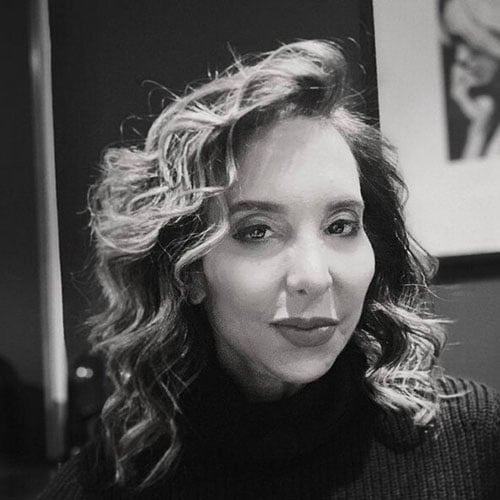 People take part in the 51st annual Israel parade in Manhattan, New York May 31, 2015. REUTERS/Eduardo Munoz
People take part in the 51st annual Israel parade in Manhattan, New York May 31, 2015. REUTERS/Eduardo Munoz I never thought I’d be writing a column for a publication that had the word “Jewish” in its name. Trained as a reporter, I moved fairly quickly into the realm of opinion journalism, mostly at The New Republic. Owned by Marty Peretz at the time, the magazine often covered Israel, but my deeply personal relationship to Judaism was never a part of my writing or professional identity.
That changed abruptly in June 2014 when the Gaza War broke out. I had been pushed to have a “social media presence” to help promote a book on design. Facebook seemed the least objectionable option, so I had built up a mélange of artist and designer friends. Much to my shock, many of those friends — smart, sophisticated people — took Hamas’ side in the conflict. And then they began to spread lies about Israel.
For the first time in my life I went from being a private Jew to a public Jew.
Even before I began, this caused problems. A friend of nearly 25 years said to me: “If you’re going to defend Israel publicly, I’m not sure we can still be friends.” And so began a rather rude awakening about where Israel stood in elite, leftist circles. When I started to defend Israel, to provide facts, the spouses of two of my closest friends blocked me. Two close friends took me out for dinner for an intervention — they thought something must be horribly wrong in my personal life for me to oppose leftist doctrine so blatantly.
I quickly learned that the banning of free speech didn’t involve just Israel. One wasn’t allowed to criticize President Barack Obama — not a word or you would be called racist. Strange ideas had pervaded the discussion: Truth and reality apparently no longer existed. Identity politics reigned, and if you were at the top of the Victim Olympics — the Arab/Muslim world — criticism was verboten.
Jews, of course, were at the bottom. Why? Because, to the left, we were “white colonialists” who were — worst sin of all — successful. Despite the expulsions, pogroms, the Holocaust. Despite the fact that our grandparents had arrived in this country with nothing, did menial work and never complained (OK, they complained, but not publicly). Despite the fact that we aren’t white.
Muslim reformer Maajid Nawaz also had a problem with what the left had become. He had dared to denounce terrorism, to link it to a radical, politicized version of Islam — and leftists went nuts. Nawaz coined the term “regressive left” to describe the illiberal takeover of the left, the slow chipping away of every liberal value.
I eagerly awaited the 2016 election. I saw it as a moment that would begin to turn around things, to bring the left back to its senses. Unfortunately, the opposite happened. Donald Trump — inexperienced, impetuous, a bull in a china shop — was elected. There was little self-reflection on the left as to its part in his election. And then the Trump right began to mirror the left: hyperpartisan, unable to criticize Trump, demanding adherence to a very specific agenda — or you would be publicly shamed.
How do we get out of this mess? For one, we need to return to real — classical — liberalism. But what does that mean?
The easiest way to describe real liberalism is that there are certain principles — freedom of speech; freedom of religion; a dedication to liberty, justice and individuality — that are nonnegotiable.
But — and here’s a very big but: Liberalism allows for policy differences. You and I don’t have to agree on immigration, tax reform, even abortion — but our arguments must be rooted in liberal principles. Freedom of speech, for instance, involves defending the right of others to express their opinions, even if we disagree with them.
But No. 2: Politics need not color our culture or our lives. You can watch a movie or see an art show and — get this — just enjoy them, even if they have no connection whatsoever to social concerns.
Finally, But No. 3: Along with rights come responsibilities. There is a set of values attached to liberalism, what Martin Luther King Jr. called “the content of your character.”
Because of how skewed the political spectrum is, classical liberalism now sits in the center. That’s OK. It is precisely this ideology that can create common ground between the right and the left and nurture a saner society.
Call it the rebellion of the radical middle.
Karen Lehrman Bloch is a cultural critic and curator. Author of “The Lipstick Proviso: Women, Sex & Power in the Real World” (Doubleday), her writings have appeared in The New York Times, The New Republic, The Wall Street Journal and Metropolis, among others.






















 More news and opinions than at a Shabbat dinner, right in your inbox.
More news and opinions than at a Shabbat dinner, right in your inbox.